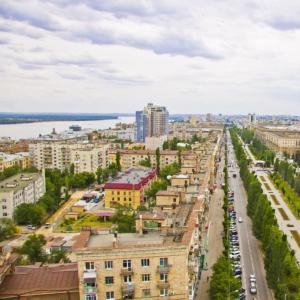Biologist: How is this work useful to society? Profession biologist
Biology is not only the study of bugs and different types of insects. Find out more about the work of specialists in this field and decide whether you want to connect your life with this field of activity.
Average salary: 30,000 rubles per month
Demand
Payability
Competition
Entry barrier
Prospects
Story
Biologists specialize in the study of living organisms. The history of the profession is directly related to the origins of medicine and its roots go back to antiquity. The first works on the description of various species, physiology and anatomy of both humans and animals appeared in Ancient Greece. In those days, philosophers thought about the structure of the world and organisms.
Over time, knowledge in the field of medicine and the structure of the surrounding world gradually increased and developed. People learned about beneficial properties of various species, learned to raise larger and more nutritious livestock, and learned new details about the internal structure of the human body.
Everything stopped during the Middle Ages. Dark times are scary time for all natural scientists. Having knowledge about the properties of herbs, the structure of organisms and human diseases was equated with worshiping the devil. Physicians, healers, herbalists - all were recognized as servants of Satan and were subjected to purification by fire.
 Enlightenment comes with the Renaissance. Natural sciences are beginning to develop rapidly. Natural history museums open, menageries and hospitals appear. The era of the flourishing of biological sciences is coming.
Enlightenment comes with the Renaissance. Natural sciences are beginning to develop rapidly. Natural history museums open, menageries and hospitals appear. The era of the flourishing of biological sciences is coming.
However, the term “biology” itself arose only in the 19th century. Biology is distinguished as a separate science, which unites a lot of branches: zoology, anatomy, physiology, etc. Previously, all these branches of knowledge existed separately, but it was in the 19th century that scientists noticed that all living things have common features, which led to the generalization of all natural sciences under the wing of biology.
Today, biologists have tremendous opportunities in terms of technology and capabilities. Modern mechanisms research, a huge store of knowledge from past years, combined with heavy-duty equipment - all this opens a new stage in the biologist profession and the development of science.
Brief description of the profession
The profession of a biologist is quite multifaceted. It is standardly classified according to branches of biological science:
- Biologist-botanist. This specialist deals with plants. He studies their properties, finds new varieties and classifies species. Also, it is this specialist who finds out the effect of plants on humans and animals.
- Biologist-zoologist. This specialist studies animals and everything connected with them, studies their diseases and their impact on humans, and searches for new species. Zoologists have a wide range of activities. They point out the reasons for the extinction of species, stimulating people to protect nature.
- Microbiologist. This is a specialist who studies microorganisms. He knows everything about bacteria, conducts various research aimed at combating them and ways to use them beneficially. This branch of biological science is developing rapidly and has a number of prospects.
Each of the three main divisions of biological science is classified into 10 types of knowledge, which are even more narrowly focused. A biologist can study everything at once. This is a generalist who knows a lot of information about the structure and principles of life of living organisms. It is biology that helps a person carry out the research necessary to discover a panacea for the terrible diseases of our time.
The work of a biologist can be either laboratory or very exciting, involving travel around the globe. Research biologists travel constantly to find new species and try to stop the massive destruction of forests.
What specialties to study?
In order to be able to work as a biologist, you need to choose one of the following specializations at a higher education institution:

All these specializations will give you the right to work both as a biology teacher and as a biologist in a research center.
Where to study
In each regional center Russian Federation There will definitely be a higher education institution that has the required faculty. The most prestigious are rightfully considered:
- Moscow state university named after M.V. Lomonosov.
- Moscow State University of Food Production.
- Moscow Pedagogical State University.
- Russian state agricultural university Moscow Agricultural Academy named after K.A. Timiryazev.
- Moscow State University of Geodesy and Cartography.
- Moscow State University of Technology and Management. K.G. Razumovsky (First Cossack University).
What do you have to do at work and specializations?
The work of a biologist mainly involves constant research activities. The range of daily responsibilities includes:
- Gathering information that goes into planning a study.
- Preparation of materials for research. A biologist constantly studies information. This is necessary in order to select methods for effectively conducting research.
- Selection and development of necessary equipment.
- Direct research. For this, not only knowledge of biology will be useful, but also excellent skills in chemistry.
- Recording the research results. The biologist constantly records the indicators of the instruments and records all types of reactions and processes.
- Generalization of results. This stage includes their re-study and processing.
- Drawing conclusions. This is already an analytical type of work. Based on the research results, conclusions and recommendations emerge.
- Trips. This is one of my favorite types of work. Biologists study species in their natural habitat, record the results and describe them.
- Discovery and description of new species. Many plants and animals have still not been discovered by humans.
- Teaching activities. Teaching students and schoolchildren the intricacies of biology and its narrower branches.
The profession of a biologist is an interesting and dynamically developing activity, a business that brings maximum benefit to man and nature.
Who is this profession suitable for?
 A biologist is, first of all, a great lover of nature and all living things. This profession requires perseverance, accuracy and attentiveness - these qualities will help in conducting research and observations. Analytical warehouse mind will make research activities as effective as possible. A biologist must have a well-developed long-term memory, since quite often some information can be useful.
A biologist is, first of all, a great lover of nature and all living things. This profession requires perseverance, accuracy and attentiveness - these qualities will help in conducting research and observations. Analytical warehouse mind will make research activities as effective as possible. A biologist must have a well-developed long-term memory, since quite often some information can be useful.
Another quality for a good biologist is the absence of allergic reactions to animals and plants. It can become a hindrance during research.
Demand
The profession of a biologist is not in demand. Typically, vacancies only appear in universities and schools. Few companies in our state are engaged in research activities. There is a significant decline in interest in biology on the market.
How much do people working in this profession earn?
On average, biologists earn 8 to 60 thousand rubles per month. Your income level depends on the scope of your skills.
Is it easy to get a job?
Getting a job is quite difficult, this is not due to high requirements, but to the fact that vacancies appear extremely rarely. When they do, a diploma is usually not enough. Experience and research practice play a key role.
How does one usually build a career?
A biologist’s career is built depending on the scope of application of knowledge:
- Teachers can grow to become head teachers, deans and rectors. The main thing is to constantly improve the level of your knowledge.
- Research biologists often become laboratory managers and project leaders. To grow, it is important to prove yourself. Continuously develop, demonstrate awareness and find materials to conduct quality research.
Prospects for the profession
The profession of a biologist has long been far from being at the peak of popularity. Most of the research is reserved for physicians and more specialized professors and scientists. There are always prospects for growth. So biologists can become deans of faculties or heads of laboratories.
44.9
For friends!
Reference
Biology is the science of life in all its manifestations. It emerged from the natural sciences in the 19th century, when scientists began to notice that living organisms have certain characteristics that are common to all. However, the origins of biology can be found in Ancient Greece, Rome, India and China. Aristotle in the 4th century BC first tried to organize knowledge about nature, highlighting 4 stages in it: the inorganic world, plants, animals, people.
Today, practical developments of biologists are used in many areas: medicine, agriculture, industry and others.
Demand for the profession
Little in demand
Profession Biologist is considered not very in demand, as there is a decline in interest in this profession on the labor market. Biologists have lost their relevance among employers either due to the fact that the field of activity is becoming obsolete, or there are too many specialists.
Description of activity
A biologist studies the flora and fauna of the Earth. He studies all aspects of life of living organisms on Earth, their structure, growth, development, origin, evolution and distribution on the planet. He classifies and describes living things and studies the interactions of species with each other. The activities of this scientist depend on his specialization. Botanists study the plant world, zoologists study animals, anatomists and physiologists study the human body, microbiologists study single-celled organisms, and this is not all areas. In addition, he must have knowledge of chemistry, physics, ecology, medicine, as well as basic knowledge of the Latin language.
Most often, a biologist's working day takes place indoors: in a laboratory, clinic, or factory. He collects necessary materials, substances and material samples. Using various types of instruments and equipment, he conducts experiments and research, the results of which will be applied in a specific industry. Except laboratory work possible work in natural conditions and business trips to places where certain plant species grow and animal habitats. Sometimes these can be hard-to-reach areas with unusual natural conditions.
Wages
average for Russia:Moscow average:average for St. Petersburg:
Uniqueness of the profession
Rare profession
Representatives of the profession Biologist really rare these days. Not everyone decides to become Biologist. There is a high demand among employers for specialists in this field, so the profession Biologist has the right to be called a rare profession.
How users rated this criterion:What education is needed
Two or more (two higher education, additional vocational education, postgraduate studies, doctoral studies)
In order to work Biologist, it is not enough to graduate from a university and receive a higher education diploma vocational education. to the future Biologist You need to additionally obtain a diploma of postgraduate professional education, i.e. complete graduate school, doctoral studies or internship.
How users rated this criterion:Job responsibilities
A biologist develops and conducts laboratory experiments, experiments and research assigned to him. For the experiment to take place, he must develop a plan and prepare the necessary materials and equipment. While monitoring the progress of the study, the biologist records instrument readings and makes the necessary changes. Afterwards, he analyzes the data obtained, writes a scientific report and submits it to the enterprise or company that ordered this research. In the report, he should give practical recommendations for improving production conditions.
Like anyone scientist biologist must constantly improve his skills and introduce new technologies into his work, use modern equipment.
The duties of a biologist may include teaching if he is an employee of an educational institution.
Type of labor
Mainly mental work
Profession Biologist- This is a profession predominantly of mental work, which is largely associated with the reception and processing of information. In progress Biologist the results of his intellectual reflections are important. But, at the same time, physical labor is not excluded.
How users rated this criterion:Features of career growth
Biological specialists can find work in research institutes, environmental organizations, in the field of agriculture And food industry. They can teach biological disciplines in educational institutions.
The career growth of a biologist depends on his place of work, the quality of the duties performed and self-education.
Career Opportunities
Minimum career opportunities
According to the results of the survey, Biologists have minimal career opportunities. It doesn’t depend at all on the person himself, it’s just a profession Biologist does not have a career path.
How users rated this criterion:Every person dreams of choosing a profession that would not only always be in demand, and therefore highly paid, but also benefit society. One of these professions is undoubtedly the profession of a biologist. It is these specialists who study everything related to living organisms on our planet. Our health, development and future largely depend on their professionalism. Therefore, it is not surprising that the biologist profession is the second most popular in the world.
Every person dreams of choosing a profession that would not only always be in demand, and therefore highly paid, but also benefit society. One of these professions is undoubtedly biologist profession. It is these specialists who study everything related to living organisms on our planet. Our health, development and future largely depend on their professionalism. Therefore, it is not surprising that the biologist profession is the second most popular in the world.
True, unfortunately, not everyone can obtain this necessary and promising profession, since it puts forward a number of requirements that only people with certain inclinations and character can meet. But what is the peculiarity of this profession, you will learn from our article.
Who is a biologist?

WITH Greek language biology translated as “science of life” (bios – life, logos – science). Accordingly, the name of the profession of a biologist indicates that he is a specialist who studies aspects of life of all living organisms on planet Earth. That is, his close attention is drawn to the origin, evolution, growth and development of living organisms, regardless of whether it is a microbe, a plant or an animal.
Biology was officially identified as an independent branch of science only in the 19th century. However, its formation dates back to even more ancient times. It is known that already the great Aristotle in the 4th century BC. made the first attempts to organize information about nature, highlighting four stages in it: people, animals, plants, and the inorganic world.
Today, the profession of a biologist unites specialists of various specializations, each of whom studies only a certain class of representatives of living organisms. For example, anatomists and physiologists study the structure and features of human life, zoologists specialize in the anatomy and physiology of animals, and a botanist studies the plant world. And this is not a complete list of the specialization of a biologist. There are also modern areas such as genetics, microbiology, biotechnology, embryology, selection, biophysics, biochemistry, virology, etc.
But in any case, no matter what specialization you choose biologist, his responsibilities are almost completely identical. The responsibilities of any biologist include: study, systematization, research general properties and patterns of development of a particular group of living organisms, conducting research in laboratory conditions, analyzing the results obtained and issuing practical recommendations for improving conditions within the framework of his specialization, etc.
What personal qualities should a biologist have?

It is not difficult to guess that a biologist, first of all, must love nature and be interested in the emergence and development of life on Earth. In addition, a real biologist is different:
- analytical and logical way of thinking;
- curiosity and patience;
- accuracy and attentiveness;
- observation and rich imagination;
- well-developed figurative visual memory;
- perseverance and ability to concentrate;
- responsibility and honesty.
It should be noted that since biologist's work involves participation in laboratory studies in which various chemicals are often used; the specialist should not be prone to allergies.
Advantages of being a biologist
As mentioned above, biology is an actively developing branch of science, opening up enormous prospects for specialists for career growth and self-realization. Another undoubted advantage of the biologist profession is its demand. According to labor market experts, this profession in the coming years may become one of the most in demand and highly paid.
An important advantage of this profession is also the wide variety of institutions and organizations in which you can demonstrate your talent and professional skills. Today, biologists are gladly hired in laboratories at research institutes, environmental organizations, nature reserves, botanical and ecological gardens, research institutes, environmental organizations, agricultural sectors and education (schools, colleges, universities).
Disadvantages of being a biologist

Despite the fact that biology is one of the most popular branches of science in the world, in Russia this field of activity is still in its infancy, so the salaries of biologists are low. Especially if they work in government agencies(for example, in laboratories at research institutes or schools).
The work of a “practicing” biologist (a specialist who studies living organisms in their natural habitat) involves frequent business trips. These specialists can be found everywhere: in the desert, in the tundra, high in the mountains, in the field and at an experimental agricultural station. Naturally, it is not always possible to conduct research in comfortable conditions, so future biologists must be prepared for life in Spartan conditions.
For young specialists to achieve successful employment, most often, theoretical training alone is not enough. That's why biology students you need to take care of it in advance practical experience work (that is, while still studying, look for a job in a specialty that is as close as possible to the future profession).
Where can you get a biologist profession?
It is very easy to become a biologist in Russia today, since in almost every medical university There are specialized faculties (biology, bioengineering, agronomics, etc.). Therefore, the choice of a particular university depends solely on personal interests and capabilities. Naturally, among universities there are undoubted leaders, graduates of biological faculties who get highly paid jobs much more often than graduates of other educational institutions. Therefore, if you are interested in successful employment, we recommend that you, first of all, try to become a student at such universities as:
- Moscow State University named after. M.V. Lomonosov - Faculty of Biology;
- Russian State Agrarian University - Moscow Agricultural Academy named after. K.A. Timiryazev - faculties: agronomics, soil science, animal engineering, agrochemistry and ecology, horticulture and vegetable growing;
- St. Petersburg State University – Faculty of Biology and Soils;
- Moscow State University of Applied Biotechnology – faculties: automation of biotechnical systems and food biotechnology;
- Moscow state academy veterinary medicine and biotechnology named after. K.I. Scriabin - faculties: zootechnology and agribusiness, veterinary biology.
Every person dreams of choosing a profession that would not only always be in demand, and therefore highly paid, but also benefit society. One of these professions is undoubtedly the profession of a biologist. It is these specialists who study everything related to living organisms on our planet. Our health, development and future largely depend on their professionalism. Therefore, it is not surprising that the biologist profession is the second most popular in the world.
Every person dreams of choosing a profession that would not only always be in demand, and therefore highly paid, but also benefit society. One of these professions is undoubtedly biologist profession. It is these specialists who study everything related to living organisms on our planet. Our health, development and future largely depend on their professionalism. Therefore, it is not surprising that the biologist profession is the second most popular in the world.
True, unfortunately, not everyone can obtain this necessary and promising profession, since it puts forward a number of requirements that only people with certain inclinations and character can meet. But what is the peculiarity of this profession, you will learn from our article.
Who is a biologist?

From Greek biology translated as “science of life” (bios – life, logos – science). Accordingly, the name of the profession of a biologist indicates that he is a specialist who studies aspects of life of all living organisms on planet Earth. That is, his close attention is drawn to the origin, evolution, growth and development of living organisms, regardless of whether it is a microbe, a plant or an animal.
Biology was officially identified as an independent branch of science only in the 19th century. However, its formation dates back to even more ancient times. It is known that already the great Aristotle in the 4th century BC. made the first attempts to organize information about nature, highlighting four stages in it: people, animals, plants, and the inorganic world.
Today, the profession of a biologist unites specialists of various specializations, each of whom studies only a certain class of representatives of living organisms. For example, anatomists and physiologists study the structure and features of human life, zoologists specialize in the anatomy and physiology of animals, and a botanist studies the plant world. And this is not a complete list of the specialization of a biologist. There are also modern areas such as genetics, microbiology, biotechnology, embryology, selection, biophysics, biochemistry, virology, etc.
But in any case, no matter what specialization you choose biologist, his responsibilities are almost completely identical. The responsibilities of any biologist include: studying, systematizing, researching the general properties and patterns of development of a particular group of living organisms, conducting research in laboratory conditions, analyzing the results obtained and issuing practical recommendations for improving conditions within the framework of his specialization, etc.
What personal qualities should a biologist have?

It is not difficult to guess that a biologist, first of all, must love nature and be interested in the emergence and development of life on Earth. In addition, a real biologist is different:
- analytical and logical way of thinking;
- curiosity and patience;
- accuracy and attentiveness;
- observation and rich imagination;
- well-developed figurative visual memory;
- perseverance and ability to concentrate;
- responsibility and honesty.
It should be noted that since biologist's work involves participation in laboratory studies in which various chemicals are often used; the specialist should not be prone to allergies.
Advantages of being a biologist
As mentioned above, biology is an actively developing branch of science, opening up enormous prospects for specialists for career growth and self-realization. Another undoubted advantage of the biologist profession is its demand. According to labor market experts, this profession in the coming years may become one of the most in demand and highly paid.
An important advantage of this profession is also the wide variety of institutions and organizations in which you can demonstrate your talent and professional skills. Today, biologists are gladly hired in laboratories at research institutes, environmental organizations, nature reserves, botanical and ecological gardens, research institutes, environmental organizations, agricultural sectors and education (schools, colleges, universities).
Disadvantages of being a biologist

Despite the fact that biology is one of the most popular branches of science in the world, in Russia this field of activity is still in its infancy, so the salaries of biologists are low. Especially if they work in government agencies (for example, in laboratories at research institutes or schools).
The work of a “practicing” biologist (a specialist who studies living organisms in their natural habitat) involves frequent business trips. These specialists can be found everywhere: in the desert, in the tundra, high in the mountains, in the field and at an experimental agricultural station. Naturally, it is not always possible to conduct research in comfortable conditions, so future biologists must be prepared for life in Spartan conditions.
For young specialists to achieve successful employment, most often, theoretical training alone is not enough. That's why biology students It is necessary to take care of practical work experience in advance (that is, while still in the process of studying, look for a job in a specialty that is as close as possible to the future profession).
Where can you get a biologist profession?
It is very easy to become a biologist in Russia today, since almost every medical university has specialized faculties (biology, bioengineering, agronomy, etc.). Therefore, the choice of a particular university depends solely on personal interests and capabilities. Naturally, among universities there are undoubted leaders, graduates of biological faculties who get high-paying jobs much more often than graduates of other educational institutions. Therefore, if you are interested in successful employment, we recommend that you, first of all, try to become a student at such universities as:
- Moscow State University named after. M.V. Lomonosov - Faculty of Biology;
- Russian State Agrarian University - Moscow Agricultural Academy named after. K.A. Timiryazev - faculties: agronomics, soil science, animal engineering, agrochemistry and ecology, horticulture and vegetable growing;
- St. Petersburg State University – Faculty of Biology and Soils;
- Moscow State University of Applied Biotechnology – faculties: automation of biotechnical systems and food biotechnology;
- Moscow State Academy of Veterinary Medicine and Biotechnology named after. K.I. Scriabin - faculties: zootechnology and agribusiness, veterinary biology.







